The 9 Best Materials Stocks to Buy Now
The short-term outlook for materials stocks is low, but these nine names could be diamonds in the rough.

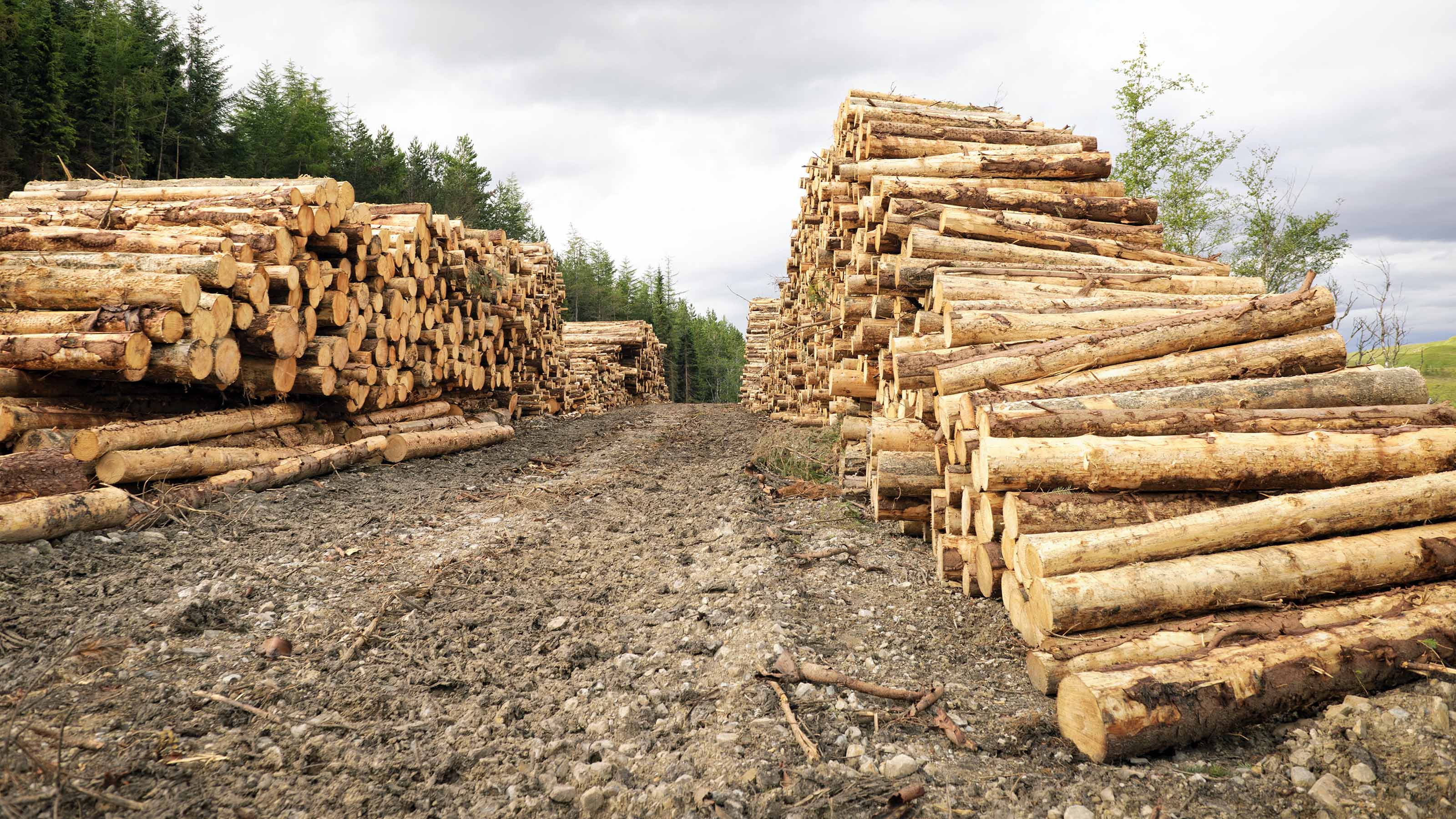
Profit and prosper with the best of Kiplinger's advice on investing, taxes, retirement, personal finance and much more. Delivered daily. Enter your email in the box and click Sign Me Up.
You are now subscribed
Your newsletter sign-up was successful
Want to add more newsletters?
Materials stocks aren't exactly glamorous in most years, but Wall Street's experts expect some particularly dull results from the sector this year.
That doesn't mean there aren't a few diamonds in the rough, however. We've recently sifted through the sector to find the best stocks to buy in the space – nine picks that the pros believe are among best materials stocks to own right now.
Materials stocks, for the record, include the likes of miners (both for precious metals such as gold and silver, as well as more industrial metals such as copper and aluminum), steelmakers, fertilizer producers. They can make plastics, concrete, paper – effectively, the building blocks for a wide array of finished goods.
It's a cyclical sector, which means that as the economy goes, so go its component stocks. No wonder, then, that in a 2023 where a recession seems like a coin-flip proposition, Wall Street isn't exactly pumped about materials' prospects.
Consider these two points from John Butters, senior earnings analyst for FactSet Research Systems:
- "At the sector level, 10 of the 11 sectors have seen a decline in their percentage of Buy ratings since the February 2022 peak, led by the industrials (to 49% from 55%) and materials (to 47% from 54%) sectors," he says, adding that materials has the highest percentage of Hold ratings, at 46%.
- "The Materials sector has recorded the largest percentage decrease in estimated (dollar-level) earnings of all 11 sectors since the start of the quarter, at -13.9% (to $11.4 billion from $13.3 billion)," he says. "As a result, the estimated (year-over-year) earnings decline for this sector has increased to -36.1% today from -25.7% on Dec. 31."
That sour forecasts doesn't apply to every stock in the sector, however. In fact, we have found more than a few names with particularly rosy outlooks – at least as far as the pros are concerned.
Read on as we explore nine of the best materials stocks to buy right now. Each of the stocks has earned a consensus Buy or Strong Buy rating across the group of analysts that cover it – and we'll explain why the Street is so high on these stocks despite low expectations for the sector as a whole.
Data is as of April 4. Analyst ratings provided by S&P Global Market Intelligence. S&P surveys analysts' stock calls and scores them on a scale from 1.0 to 5.0, where 1.0 equals a Strong Buy and 5.0 is a Strong Sell. Any score higher than 3.5 means analysts, on average, rate the stock at Sell. The closer a score gets to 5.0, the stronger the consensus Sell recommendation.
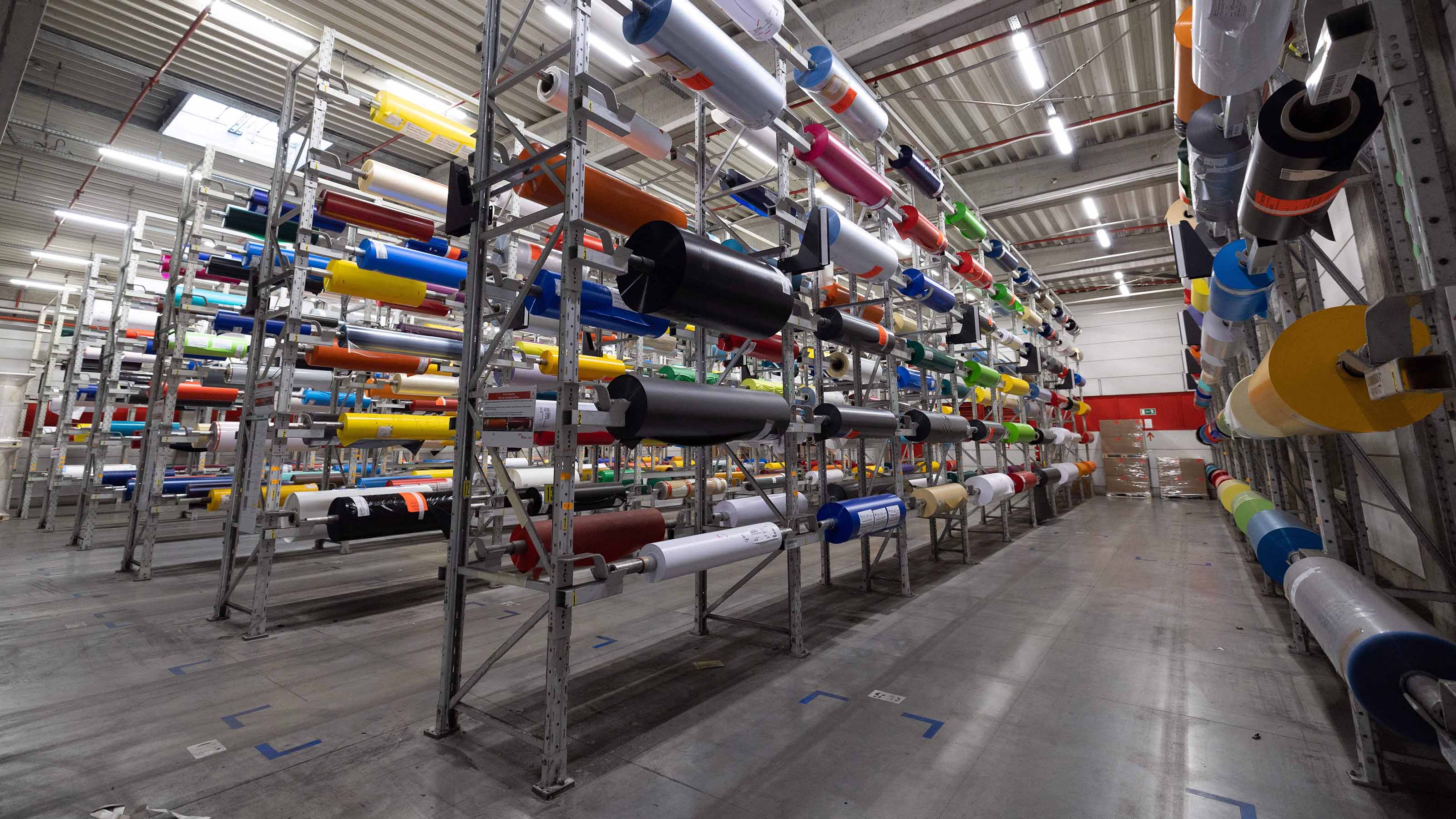
Avery Dennison
- Market value: $14.3 billion
- Dividend yield: 1.7%
- Analysts' consensus recommendation: 1.92 (Buy)
- Analysts' ratings: 6 Strong Buy, 3 Buy, 3 Hold, 1 Sell, 0 Strong Sell
Avery Dennison (AVY, $175.37) is a materials science company that specializes in packaging and labeling technologies. It produces everything from inks and vehicle graphics wrappers to pharmaceutical labels and even traffic signs.
But one of the biggest growth opportunities for this Mentor, Ohio-based materials stock is radio frequency identification (RFID) and digital IDs, which the company is helping to turn into smart labeling technologies.
"RFID/Intelligent Labels present a significant opportunity for AVY," says Truist analyst Michael Roxland, who rates AVY at Buy. "In 2023, AVY is targeting roughly $1 billion in sales, up about 25% year-over-year vs about $800 million in 2022.
"Over the next several years, AVY expects 20%+ annual growth, partly driven by growth in other verticals including food, logistics, health & beauty, and automotive."
Its fourth-quarter financials, reported in February, included a 7.2% year-over-year decline in net sales largely driven by inventory destocking. However, CFRA maintained its Buy rating, expecting growth to resume later this year.
"Although this inventory drawdown is putting significant pressure on financial results, we think a normalized growth trajectory will resume in Q2," says CFRA analyst Matthew Miller. "The sudden decline in volume is indicative of patterns AVY has experienced in previous macro slowdowns and AVY has initiated temporary (and structural) cost reductions and is ramping up restructuring, as well as paring back capital spending in the base business."
A figure worth noting is a higher-than-peer-average 60% debt-to-capitalization ratio at the end of 2022. But Argus Research's David Coleman (Buy) notes that the figure was down from 63% a year earlier, and calls the debt load "manageable."
A Buy camp of nine analysts, versus just three Holds and a lone Sell, put AVY shares among the Street's best materials stocks to buy now.

Corteva
- Market value: $43.0 billion
- Dividend yield: 1.0%
- Analysts' consensus recommendation: 1.91 (Buy)
- Analysts' ratings: 9 Strong Buy, 8 Buy, 5 Hold, 1 Sell, 0 Strong Sell
You know Dow (DOW). You know DuPont (DD). But you might not be as familiar with Corteva (CTVA, $60.40), the agriculture business that was spun off in 2019 from the then-combined DowDuPont.
Corteva is a global giant in the seed and crop protection industries. Its Seed segment develops advanced seeds that produce crops with optimum yields, can better withstand weather and are more resistant to disease and insects. Meanwhile, its Crop Protection division produces weedkillers, insecticides, nitrogen stabilizers and other plant-protecting chemicals.
CTVA is coming off a strong 2022 that saw shares jump 24% compared to a 19% drop for the S&P 500 and a 14% decline for the materials sector. That was backed by excellent 2022 operational results: Corteva enjoyed 11% year-over-year growth in revenues, while adjusted earnings jumped 24%. The company reported "strong gains" in all regions, with crop protection doing the heavy lifting with 17% net sales growth.
And the Street – which has 17 buys on the material stock, versus just five Holds and one Sell – largely thinks CTVA can build upon 2022's successes.
"We forecast agriculture will remain robust in '23, and will bode well for CTVA, with high demand for grain and oilseeds, commodity prices above historical averages, and farmers prioritizing maximum yields as their income levels rise," says CFRA analyst Emily Nasseff Mitsch (Buy), who also points out the company's "healthy" balance sheet and "attractive" free cash flow, the latter of which Corteva is happy to reroute back to shareholders.
Indeed, CTVA bought back $800 million in shares last year as part of its $1.5 billion buyback authorization. It also has a regular dividend, which it raised by 7% in July 2022, to 15 cents per share quarterly.
Argus Research's Bill Selesky (Buy) also sees 2023 as a strong year for Corteva.
"We expect Corteva … to benefit from its global scale, broad product range, and new product pipeline, as well as from strong demand for agricultural commodities," he says. "We also expect U.S. planted acreage to favor corn over soybeans in 2023, which should benefit margins and earnings at Corteva.
"In all, we believe that Corteva is entering a period of strong earnings growth."

Martin Marietta Materials
- Market value: $21.6 billion
- Dividend yield: 0.7%
- Analysts' consensus recommendation: 1.90 (Buy)
- Analysts' ratings: 9 Strong Buy, 4 Buy, 5 Hold, 1 Sell, 0 Strong Sell
Martin Marietta Materials (MLM, $347.55) is a building materials giant that deals in crushed stone, sand, gravel, ready-mixed concrete, asphalt and specialty cement. It also produces chemicals that are used in a variety of applications, from pulp and paper production to flame retardants.
MLM largely followed the broader homebuilding industry lower in 2022, losing roughly a quarter of its value across the year. There was hardly anything wrong with Martin Marietta's operating results – the company delivered 13% YoY revenue gains and a 22% profit jump in 2022 – but more of a comedown following a wild two-year rebound off the COVID lows.
"We continue to like the industry and setup into 2023 and beyond," says Stifel's analyst team, which rates MLM shares at Buy. "While residential markets remain uncertain, non-[residential] looks stable and infrastructure looks to be accelerating. Pricing remains robust across the board, and equally important, base level pricing has moved materially higher over the past 18 months ahead of what we'd expect to be several years of accelerating infrastructure volumes on the horizon."
Stifel has particular praise for the company's ability to succeed with "larger, chunkier" mergers and acquisitions – a strategy that "has transformed the business and created a portfolio of coast to coast assets that would be prohibitive to replicate, in our view."
CFRA's Matthew Miller added a bullish view of MLM shares in February, raising his full-year target to $423 per share from $375 previously.
"While we remain concerned about a slowdown in private construction activity, we are impressed with MLM's earnings growth with little to no volume growth," he says. "We think it's a compelling time to invest in MLM, as we expect earnings growth to accelerate significantly when volume growth gets a boost from higher infrastructure investment combined with reshoring of U.S. supply chains."
Miller is one of 13 Buy-equivalent ratings on Martin Marietta, compared to just five Holds and one Sell for the materials stock.
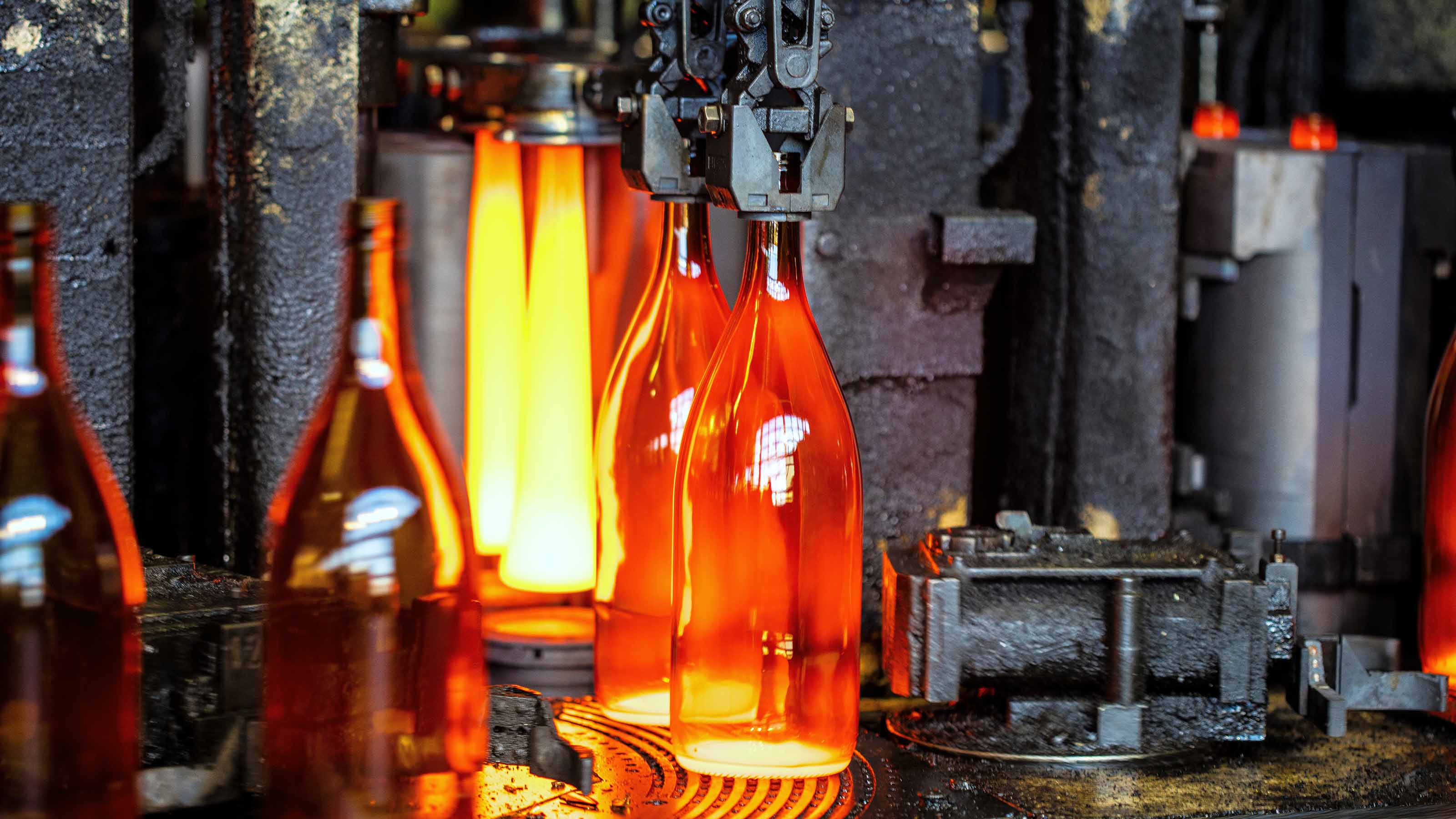
O-I Glass
- Market value: $3.5 billion
- Dividend yield: N/A
- Analysts' consensus recommendation: 1.90 (Buy)
- Analysts' ratings: 5 Strong Buy, 2 Buy, 2 Hold, 1 Sell, 0 Strong Sell
Also known as Owens-Illinois, O-I Glass (OI, $22.46) is one of the world's top glass-container makers and sellers. Its glass products are sold to food and beverage manufacturers for use with beer and wine, soft drinks, juices, salad dressings, even pharmaceuticals.
Like with CTVA, the analyst set is convinced that the Perrysburg, Ohio-based O-I Glass can keep up the momentum from a stellar 2022 that saw OI shares rocket 38% higher.
"In 2022, OI had great success at achieving its $1.5 billion portfolio optimization program (proceeds used to reduce debt and invest in expansion initiatives) and achieving a final resolution of its legacy asbestos liabilities," says CFRA analyst Matthew Miller, who upgraded his rating on OI shares to Buy in February and upped his 2023 earnings per share (EPS) estimate to $2.62 from $2.23 prior.
"We have seen OI as a turnaround story and we think OI has officially turned the corner, entering 2023 with solid operating momentum," he says. "In 2023, we think OI will only achieve volume growth of 1% (due to OI's record low inventory level), but margin expansion will be the story, driven by ongoing efficiency efforts. In 2024, we anticipate mid-single-digit volume growth."
Also optimistic is Truist's Michael Roxland (Buy), who upgraded his price target in February, to $27 per share from $23 previously. He not only sees considerable upside in 2023, but the chance for additional shareholder rewards come 2024.
"In the near-term, the company will continue to focus on derisking its balance sheet and bringing leverage below 3x," he says. "Once that is achieved, which we believe could happen by year-end, OI is likely to focus on increasing capital returns to shareholders."
OI makes this list of the top materials stocks by virtue of seven Buys versus just two Holds and one Sell.

Ashland
- Market value: $5.5 billion
- Dividend yield: 1.3%
- Analysts' consensus recommendation: 1.85 (Buy)
- Analysts' ratings: 7 Strong Buy, 2 Buy, 3 Hold, 1 Sell, 0 Strong Sell
Ashland (ASH, $101.41) is an extraordinarily diversified additives and special ingredients firm that operates across four segments: Life Sciences, Personal Care, Specialty Additives, and Intermediates.
It would almost be quicker to list what Ashland doesn't do. Its products are used in everything from sauces, dairy products and beverages, to hair, oral and skin care, to cement and ready-to-use plasters, to architectural paints and industrial coatings.
This material stock's robust portfolio makes it more defensive than most of the sector – a quality BMO Capital Markets' John McNulty likes going into 2023 and even 2024.
"ASH continues to have a solid outlook that will drive double-digit EPS growth in [fiscal 2023] barring some notable setback in Europe and/or limited recovery in China post-COVID outbreaks," says McNulty, who rates the stock at Outperform (equivalent of Buy). "We see its defensive characteristics, solid balance sheet and 2Q buyback as a positive for investors looking for relative safety in the current challenging environment and yet see the sizable capacity adds in a number of its sold-out platforms as affording the company growth in 2024 that will help it keep up with more cyclical names."
China dragged considerably on fiscal first-quarter results reported in late January, especially in the company's Personal Care and Specialty Additives lines. Adjusted net profits of 73 cents per share were 17% lower year-over-year. Regardless, Ashland reaffirmed its fiscal 2023 sales and adjusted EBITDA forecasts, which both project high-single-digit growth over FY22.
Argus Research's Bill Selesky lowered his earnings estimates following the report but reiterated his Buy rating on the stock.
"We expect significant improvement in the coming quarters based on our expectations for better performance in Europe and the reopening of the Chinese economy," he says.
Ashland enjoys nine Buys versus just three Holds and one Sell, easily making it one of the best material stocks to buy, in the analysts' eyes.

Vulcan Materials
- Market value: $22.5 billion
- Dividend yield: 1.0%
- Analysts' consensus recommendation: 1.82 (Buy)
- Analysts' ratings: 11 Strong Buy, 5 Buy, 5 Hold, 1 Sell, 0 Strong Sell
Vulcan Materials (VMC, $168.86) is another building materials firm that operates via four segments: Aggregates, Asphalt, Concrete and Calcium. It's America's largest producer of construction aggregates, providing the raw materials used in houses, schools, commercial buildings, roads, airport runways and even sewers.
Like MLM, Vulcan had a difficult 2022 from a share perspective, losing more than 15%, but it was mostly a post-COVID-rally hangover. Financial results were just fine, with full-year revenues soaring by 32%, while profits improved by a modest 1.3%. Admittedly, VMC limped out of the year with a weak Q4 that saw earnings decline by 14%, but even then, it had the confidence to raise its payout by 7.5%, to 43 cents per share quarterly.
Argus Research's David Coleman (Buy) is looking past the fourth quarter, saying he expects the company to recover during this year's second half and in 2024.
"We expect Vulcan to benefit from the Biden administration's infrastructure plan, as well as from price increases," he says. "We also believe that Vulcan remains one of the best-positioned companies in the construction materials industry thanks to its size and scale, strong presence in high-growth geographic markets, and healthy balance sheet."
While VMC very well could be among the best materials stocks to buy now, that benefit from the Infrastructure Investment and Jobs Act might not come until next year.
"In November of 2021, VMC believed it would take 18-24 months to see benefits which appears to be playing out this year," says Stifel's analyst team, which also has the stock at Buy. "While state budget and award data has ramped significantly in recent months (partly driven by inflation), VMC pointed out that lettings/awards translating into shipments usually takes longer than expected. While VMC expects to see some benefits begin in 2H23 (resulting in LSD infrastructure growth in 2023), the full impact likely begins in 2024."
Better still: Vulcan's management believes the IIJA will provide five to seven years of steady growth in infrastructure shipments, Stifel says.
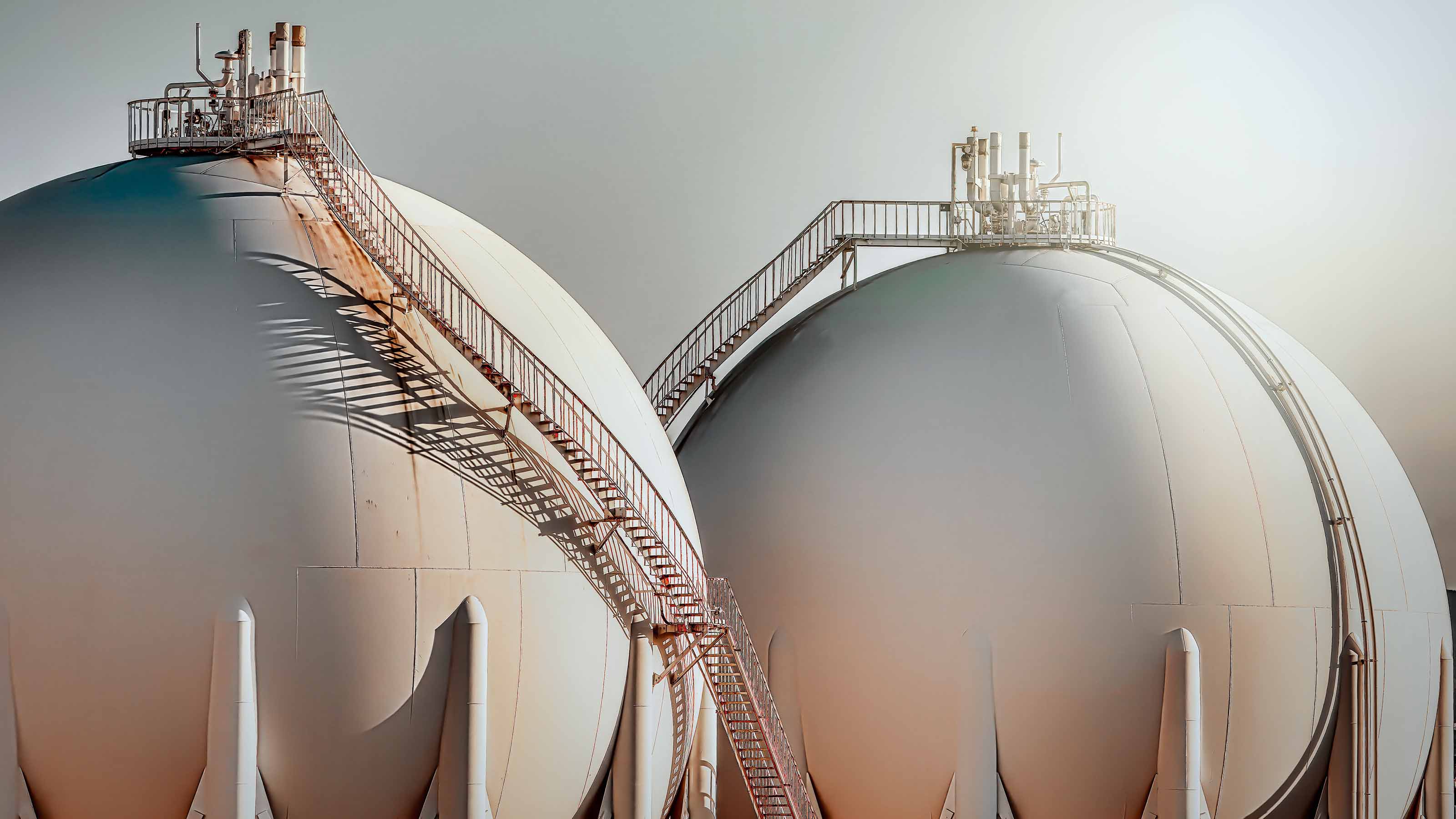
Linde
- Market value: $176.1 billion
- Dividend yield: 1.4%
- Analysts' consensus recommendation: 1.63 (Buy)
- Analysts' ratings: 13 Strong Buy, 7 Buy, 4 Hold, 0 Sell, 0 Strong Sell
Materials stocks aren't exactly known for generous dividends, and Linde (LIN, $357.80) is no exception, yielding slightly less than the S&P 500 at present.
But it is one of the best dividend growth stocks.
U.K.-based Linde is a member of the S&P 500 Dividend Aristocrats, by virtue of its 2018 merger with then-Aristocrat Praxair. It boasts three decades of uninterrupted annual payout growth, including a 9% raise in February that marked its 30th year of dividend hikes.
As for the business itself: Linde is a global industrial gas company that produces argon, carbon dioxide, electronic cases, helium, hydrogen, nitrogen, oxygen and numerous other gases. The applications are endless, from extracting gold to powering flat-screen TVs to making wine.
Linde finished in the red last year, but only by 6% to easily outdo the broader market and materials sector. It exited 2022 with a strong fourth quarter that saw adjusted EPS pop by 35% despite difficulties in Europe and China, as well as a slowdown in electronics.
Wall Street is plenty bullish on the name: 20 analysts give it a Buy rating, versus four Holds and no Sells.
"Looking ahead to 2023, robust price/volumes, gains from efficiency, new projects and tailwinds from a normalized energy/power cost environment should all drive LIN toward/above the higher-end of its double-digit EPS growth range," says BMO analyst John McNulty (Outperform), who calls LIN one of the firm's Top Large-Cap Picks. "We also see an acceleration of long-term earnings growth as LIN adds more blue/green H2 projects to their plate in the near future."
CFRA's Matthew Miller (Buy) is also in the Linde bull camp.
"We expect strong financial results in '23 to be driven by price attainment in all geographic segments and less of a headwind from foreign exchange, resulting in significant operating leverage," he says. Miller predicts LIN will grow sales 7.1% year-over-year, leading to a 12.6% improvement in profits.

MP Materials
- Market value: $4.9 billion
- Dividend yield: N/A
- Analysts' consensus recommendation: 1.27 (Strong Buy)
- Analysts' ratings: 9 Strong Buy, 1 Buy, 1 Hold, 0 Sell, 0 Strong Sell
MP Materials (MP, $27.29) is a materials company based in Las Vegas, Nevada, that operates America's only rare-earth mine and processing facility. Rare earths are a vital component in numerous industries, including technology and clean energy.
One of the biggest applications of MP's rare earths is in the automobile industry. Neodymium and praseodymium are used in the motors of electric cars, for instance, and cerium is used in automotive catalysts. However, a combination of rising interest rates and recessionary fears dampened auto-sales projections last year – that and other headwinds nearly halved MP shares in 2022.
MP rebounded strong to start 2023, up nearly 50% in the first two months. But an early March announcement from Tesla (TSLA) has erased the vast majority of those gains. Specifically, Tesla said that its next generation of EV motors wouldn't contain rare earths.
Despite this, the pros remain almost unanimously bullish – MP is one of the best materials stocks to buy, per their ratings, at 10 Buy calls versus a lone hold.
CFRA (Strong Buy), for instance, believes shares have 77% upside from current prices.
"There have always been alternatives to rare earths when producing permanent magnets used in electric motors, but our view is that choosing to build a permanent magnet motor without neodymium-praseodymium (NdPr) will most certainly be an inferior product to NdPr magnetics," says CFRA analyst Matthew Miller, who calls MP shares one of "the most compelling ways" to play decarbonization. "It's also important to keep the news from Tesla in context. If NdPr only gains a small market share of EV motor production over the next decade, this will represent significant growth from today's consumption and the demand from wind turbines, drones, and robotics is also expected to stay strong."
BofA Global Research's analyst team, which also rates MP shares at Buy, echoes Miller's thoughts.
"While we do acknowledge the downside risks posed by current or future technological developments, the strong long-term growth outlook for permanent magnet use in EV's/wind turbines (expected to grow 2-3x by 2035), suggest there may be enough room for multiple technologies to co-exist," BofA says. "Further, there is a significant (though lower growth) market for these rare earths outside of EV/wind turbine applications that amount to 80% of estimated consumption."
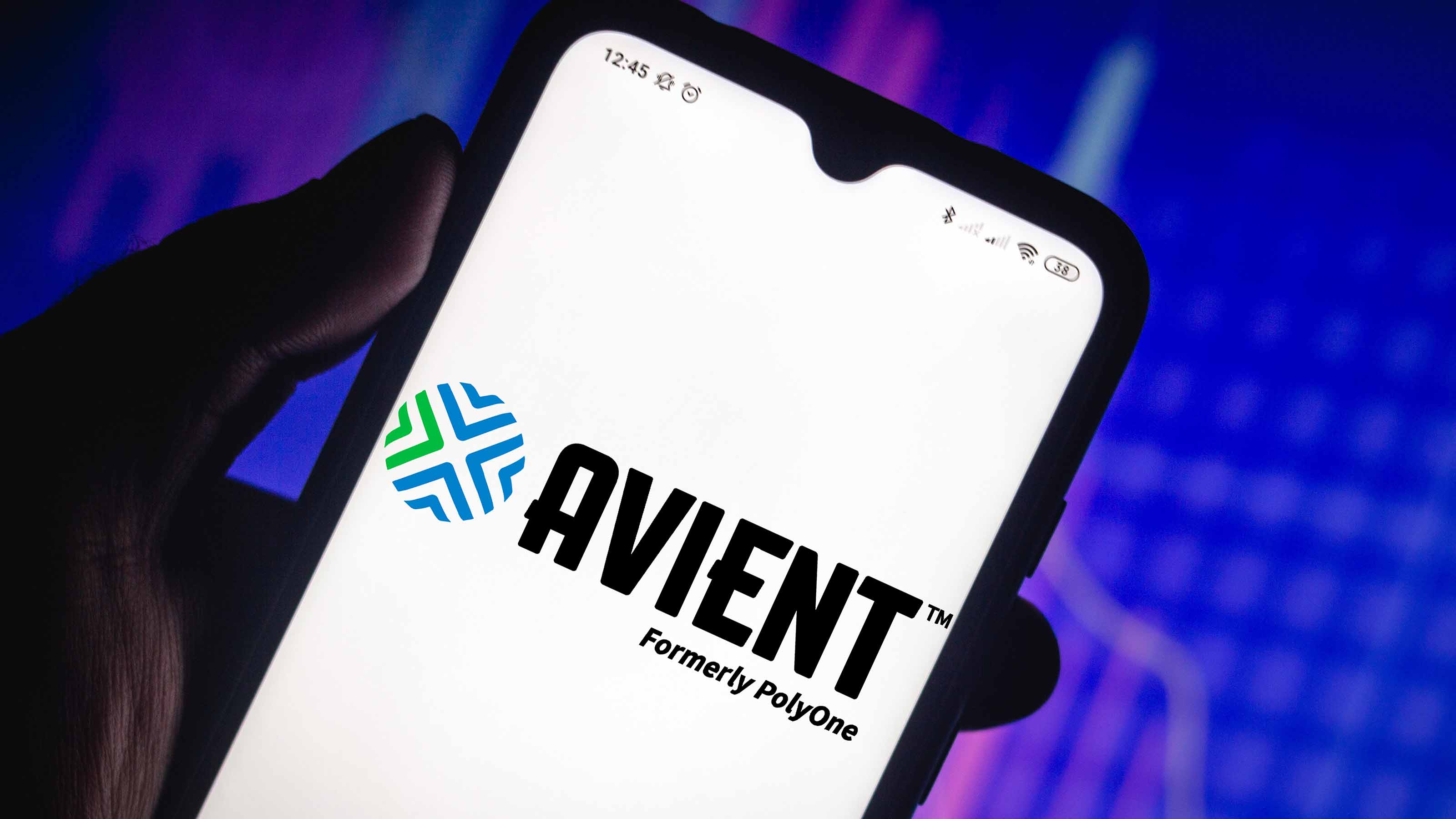
Avient
- Market value: $3.7 billion
- Dividend yield: 2.4%
- Analysts' consensus recommendation: 1.25 (Strong Buy)
- Analysts' ratings: 7 Strong Buy, 0 Buy, 1 Hold, 0 Sell, 0 Strong Sell
The top materials stock on our list delivered an absolute stinker of a 2022.
Avon Lake, Ohio-based Avient (AVNT, $39.96) is a global materials play that specializes in engineered materials, advanced composites, polymer color systems and more. Its products range from screen printing inks to foaming agents to high-performance synthetic fibers to tubing materials.
The company struggled mightily in 2022 – the war in Ukraine, China's COVID lockdowns, rising energy costs, rising interest rates and inflation in the U.S. and Canada were all among bugaboos cited in Avient's earnings reports last year.
But the pros say it's just a matter of time before AVNT recovers.
"While the demand environment will likely continue in 1H23, raw material price deflation and more favorable [foreign exchange] impacts provide upside to estimates," says Baird analyst Ben Kallo, who rates the stock at Outperform. "We expect demand to recover gradually in 2H23 and are optimistic that the most significant impacts of inflationary pressures are behind AVNT."
Oppenheimer upgraded the stock to Outperform in February, seeing a similar recovery timeframe as Baird.
"With the stock returning to pre-3Q preliminary guidance levels, our thesis assumes that destocking headwinds persist into 1Q with revenue bottoming out in 1H driven by crosswinds of moderating inflation, gradual China reopening, and Europe remaining resilient," says Oppenheimer's analyst team.
Avient isn't just the top materials stock to buy, according to the pros – its consensus Strong Buy rating makes it one of the top stocks period. We will note that Avient has a smaller analyst crowd than many larger firms, with just eight analysts – but seven of those eight are extremely bullish on the stock, while the lone dissenter remains on the sidelines at Hold.
Profit and prosper with the best of Kiplinger's advice on investing, taxes, retirement, personal finance and much more. Delivered daily. Enter your email in the box and click Sign Me Up.
Kyle Woodley is the Editor-in-Chief of WealthUp, a site dedicated to improving the personal finances and financial literacy of people of all ages. He also writes the weekly The Weekend Tea newsletter, which covers both news and analysis about spending, saving, investing, the economy and more.
Kyle was previously the Senior Investing Editor for Kiplinger.com, and the Managing Editor for InvestorPlace.com before that. His work has appeared in several outlets, including Yahoo! Finance, MSN Money, Barchart, The Globe & Mail and the Nasdaq. He also has appeared as a guest on Fox Business Network and Money Radio, among other shows and podcasts, and he has been quoted in several outlets, including MarketWatch, Vice and Univision. He is a proud graduate of The Ohio State University, where he earned a BA in journalism.
You can check out his thoughts on the markets (and more) at @KyleWoodley.
-
 Why Some Michigan Tax Refunds Are Taking Longer Than Usual This Year
Why Some Michigan Tax Refunds Are Taking Longer Than Usual This YearState Taxes If your Michigan tax refund hasn’t arrived, you’re not alone. Here’s what "pending manual review" means and how to verify your identity if needed.
-
 If You'd Put $1,000 Into Caterpillar Stock 20 Years Ago, Here's What You'd Have Today
If You'd Put $1,000 Into Caterpillar Stock 20 Years Ago, Here's What You'd Have TodayCaterpillar stock has been a remarkably resilient market beater for a very long time.
-
 Good Stock Picking Gives This Primecap Odyssey Fund a Lift
Good Stock Picking Gives This Primecap Odyssey Fund a LiftOutsize exposure to an outperforming tech stock and a pair of drugmakers have boosted recent returns for the Primecap Odyssey Growth Fund.
-
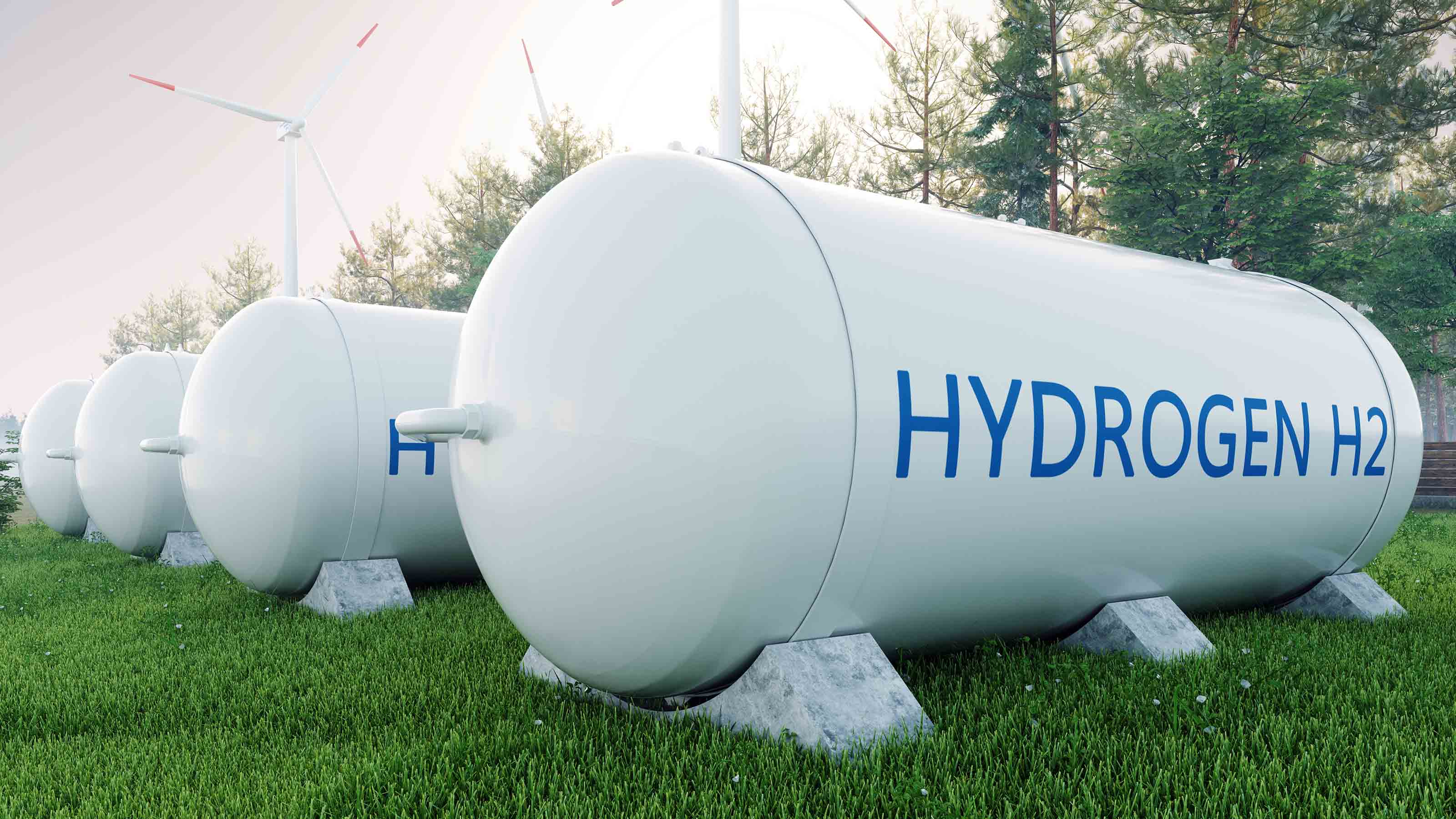 Hydrogen Stocks: Unstable, But Potentially Explosive, Too
Hydrogen Stocks: Unstable, But Potentially Explosive, TooESG Green hydrogen is in its relative infancy, making related stocks quite volatile. But long-term investors can use that to their advantage.
-
 Stock Market Today: Dow Ekes Out Record, Nasdaq Retreats Again
Stock Market Today: Dow Ekes Out Record, Nasdaq Retreats AgainStock Market Today Energy and materials stocks led the way Wednesday as good (albeit not great) economic data was enough to push the Dow to new highs.

